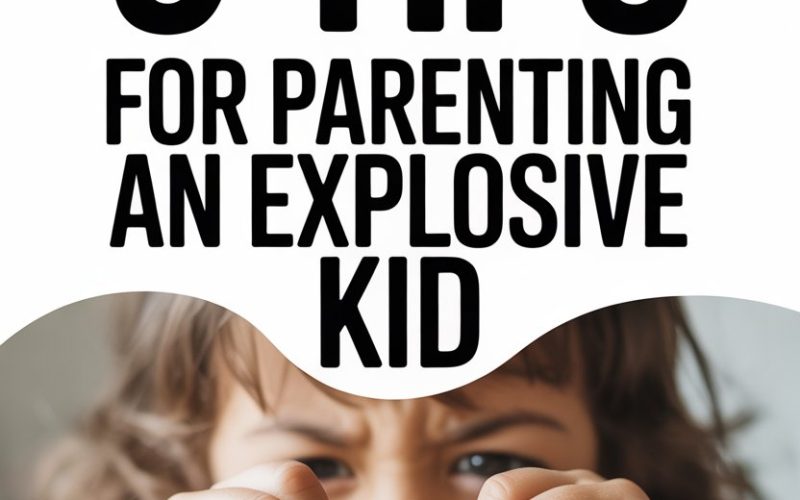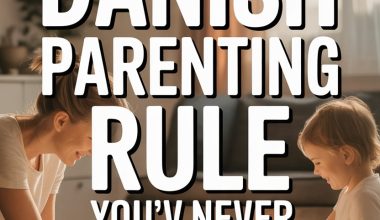Some children are like powder kegs with very short fuses—one wrong move and boom, there goes your peaceful evening.
If you’re raising an explosive kid, you know tantrums aren’t just toddler territory. The fireworks can hit at any age, and frankly, most parents would rather have a root canal than handle one more epic meltdown.
Take a deep breath. You’re not alone, and it’s not your fault.
Here’s what you need to know, and nine practical ways to help you and your child weather the storm (without losing your own cool).
1. Pick Your Battles Wisely
Every parent dreams of raising a perfectly obedient child, but with an explosive kid, this is about as realistic as finding a unicorn in your garage.
Some rules are non-negotiable—safety comes first.
But if you find yourself arguing about socks, snack options, or whether peas count as an acceptable dinner, it might be time to re-evaluate. Ask yourself: is this hill worth dying on?
Experts like Dr. Ross Greene, author of The Explosive Child, suggest prioritising battles. Decide what really matters and let the rest go. Less friction means fewer sparks.
2. Notice the Warning Signs
Explosive blowups rarely come out of nowhere. More often, there’s a slow burn—clenched fists, a furrowed brow, that wild look in the eyes.
Start watching for your child’s tells (think of it as high-stakes poker, except the chips are your sanity). Catching the signs early lets you intervene before the volcano erupts.
Some parents keep a log to spot patterns: Hungry? Tired? Overstimulated?
Over time, you’ll become a meltdown detective, and your odds of dodging disaster will improve.
3. Stay as Calm as Humanly Possible
Easier said than done, right? When your child is shrieking and throwing toys, your inner voice may sound less like a wise sage and more like a banshee.
Still, your reaction sets the tone. Studies show that children mirror adult emotions.
When you’re able to remain steady (or do a passable impression), you’re signaling that there’s no emergency—even if the cat just ran for cover.
Try a mantra, a deep breath, or the classic “count to ten.” You’re modelling emotional regulation, and that’s a lesson your child desperately needs.
4. Validate Their Feelings (Even If You Secretly Disagree)
When your child is losing it because you cut their sandwich into squares (never triangles!), logic won’t work. Seriously, don’t even bother.
Instead, try validation. That doesn’t mean agreeing with the behaviour, but it does mean acknowledging the feeling behind it.
Try: “You’re really upset right now. I get it. That’s hard.”
Research from the Child Mind Institute shows that validating emotions helps kids feel heard and calms their nervous system. Who knew empathy could be so disarming?
5. Plan for Transitions Like a Pro
Explosive kids struggle with change. Moving from one activity to another can unleash the Kraken.
Help your child by preparing them for what’s next. Give warnings: “Five more minutes, then we tidy up.” Use visual timers, countdowns, or even silly songs—get creative. (Yes, you may feel ridiculous, but your eardrums will thank you.)
The more predictable transitions become, the less likely you’ll face a Category Five meltdown.
6. Give Them Some Control—Within Limits
Nobody likes being bossed around all day, especially not a fiercely independent child.
Offer small, manageable choices. “Would you like to brush your teeth before or after your bath?” “Red cup or blue cup?” This gives your child a sense of agency, reducing the urge to rebel just for the thrill of it.
Research has shown that offering choices increases cooperation, lowers anxiety, and might even save you from one of those public tantrums that make you consider moving country.
7. Rethink Discipline and Consequences
Traditional punishments often backfire with explosive kids.
Sending them to their rooms? You may be giving them ammo for next time. Taking away their favourite toy? Cue the next World War.
Consider consequences that teach rather than punish. Logical consequences work best: if they throw their snack, the snack goes away. If they scream at their sister, they apologise when calm.
This isn’t about being a pushover. It’s about connecting behaviour to outcomes—a key skill for life (and your own sanity).
8. Build Emotional Vocabulary (No Degree Required)
Big emotions need names. Many explosive kids can’t explain what they’re feeling, so it comes out as rage, frustration, or wild behaviour.
Start labelling feelings for your child: “You look frustrated,” or “That’s disappointment.” Picture books about emotions, feelings charts, or even silly faces in the mirror can help.
The goal? Equip your child with words, so their feelings don’t come out as flying shoes.
9. Look After Yourself, Too
You can’t pour from an empty cup (and you definitely can’t parent from one). Explosive kids can leave you drained, frazzled, and eyeing the biscuit tin at 10am.
Take your breaks where you can. Tag in another adult if possible, even if it’s just for a cuppa.
Seek support from friends, family, or support groups—sometimes all you need is someone else to say, “Yep, my kid does that too.”
If your child’s outbursts are frequent and severe, don’t hesitate to consult a paediatrician or therapist. Sometimes brains need a little extra help, and there’s no shame in asking for it.
You’ve Got This
Every family has its unique challenges, but raising an explosive child can feel especially lonely and exhausting. Small tweaks and a few clever tactics can make a world of difference—not just for your child, but for your whole household.
Remember, progress isn’t always straight or speedy. Some days are two steps forward, one tantrum back. That’s absolutely okay.
Celebrate the wins, forgive the rough patches, and keep your sense of humour handy—it’s one of your best parenting tools.
And on the really loud days? There’s always chocolate.
Or a good pair of noise-cancelling headphones. You do you.




